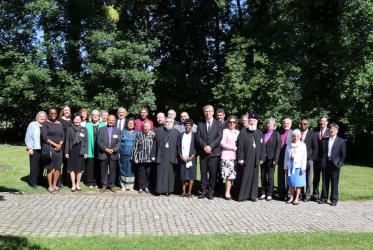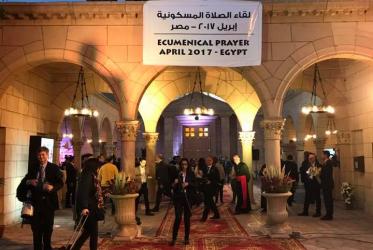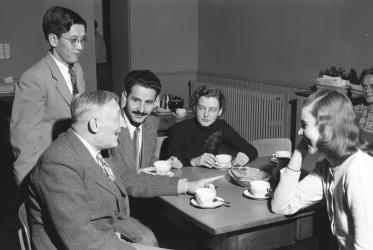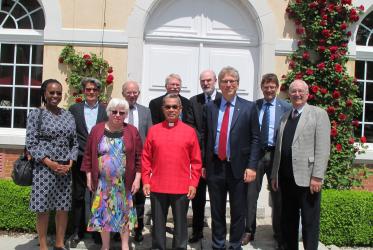Displaying 101 - 120 of 182
07 July 2017
WCC Executive Committee to focus on unity
08 June 2017
Churches in Norway and Pakistan break new ecumenical ground
26 January 2017
Tveit offers input at religion and development meeting
03 October 2016
Bossey anniversary commemorates 70 years of heartfelt dialogue
28 September 2016
Hielke Wolters: Apostle of mission strategies
01 August 2016
A fresh agenda for ecumenism in Asia
20 July 2016
Panel discussion fields ideas on European identity
26 April 2016













